Raven Schwam-Curtis, a New York native and social media influencer, launched her TikTok account in 2021 to break down long-winded, often hard to understand topics into videos her audience could digest in less than a minute.
“I became really invested in this idea of democratizing intellectual information and democratizing knowledge at large,” said Schwam-Curtis, who is in her mid-20s.
Schwam-Curtis is one of the 41 million members of Generation Z who are eligible to vote in the Nov. 5 election, an influential voting bloc if they go to the polls. About 8 million will be eligible to cast a vote for the very first time.
They include about 4.5 million white youth and 3.8 million youth of color: 2 million are Latino, 1.2 million are Black, 500,000 are Asian and 80,000 are Native American, according to the Center for Information & Research on Civic Engagement at Tufts University.
Cleveland native Aubriana Hills, who is a 19-year-old sophomore at Howard University, said Gen Z will “definitely” have the voting power to sway the presidential election.
“I think Gen Z recognizes how important this election is for our future, and it’s motivating a large majority of us,” Hills said, who is double majoring in biology and international affairs. “I do think where the issue comes in is for those of us who are uneducated about the election or feel as though their vote won’t matter, so in turn, they opt out of voting.”
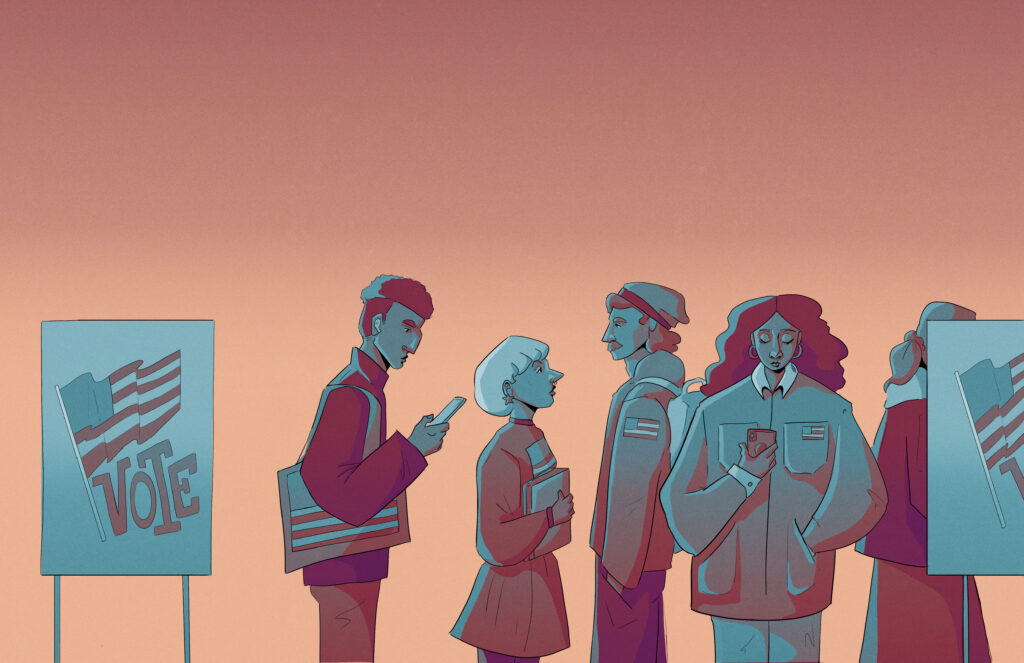
The presidential race is in a near statistical tie between Democrat and Vice President Kamala Harris and Republican and former President Donald Trump.
At the time of publication, polls showed Harris and Trump at nearly a 50/50 split in the battlegrounds of Michigan, Pennsylvania and North Carolina. Young voters in those states could decide the election.
Schwam-Curtis said she believes that part of the reason Harris and Trump are tied is because younger, more left-leaning voters are unhappy with President Joe Biden’s handling of social issues.
“For different reasons, folks are dissatisfied,” Schwam-Curtis told GJR. “I don’t think that there’s one core reason that could be identified, but I think it’s dependent on what’s paramount for every voter. Those top issues, whether it’s Israel, immigration, reproductive rights, economy, and who they think is more aligned with the kind of future they want.”
Generation Z marks the cohort of teenagers and young adults born between 1997 and 2012.
Amber Wichowsky, an associate professor of public affairs at the University of Wisconsin-Madison, said that studies have shown that with this presidential election, reproductive freedom tends to be at the top of the list for Generation Z voters.
Looking back at the 2020 presidential election between Trump and Biden, Wichowsky said climate change was at the forefront of young voters’ minds.
Wichowsky said a contributing factor for strong reproductive rights rising to the top of Gen Z’s ideal ticket is because this is the first election since Roe vs. Wade was overturned in a landmark decision in June 2022.
“It also is important to note that campaigns work to activate issues,” Wichowsky said. “So when candidates are on the campaign trail saying, ‘It’s immigration,’ ‘It’s the border,’ or when candidates are out there saying, ‘It’s abortion,’ that sends signals to voters that these are the issues that connect the voter to the candidate.”
Schwam-Curtis said some of the most pressing issues for her include reproductive justice, Israel’s bombardment of Gaza and the rise of Islamophobia and antisemitism as a result, and the economy.
“From my understanding, the economy and reproductive rights are the two major issues, and they’re at the top of my list too,” she said.
Schwam-Curtis, who is Black and Jewish, started her TikTok account, which has over 109,000 followers, to discuss the communities she belongs to. But with the United States’ landscape of anti-Black, antisemitic, transphobic, homophobic and xenophobic rhetoric, the platform has broadened.
“It really was just sort of a natural lead in especially an election year, where all these things are coming to the forefront,” Schwam-Curtis said.
According to a study by the Pew Research Center, Generation Z is the most racially and ethnically diverse generation than those that came before. As of 2019, one in four members of Generation Z were Hispanic, marking a significant jump in diversity among the cohort.
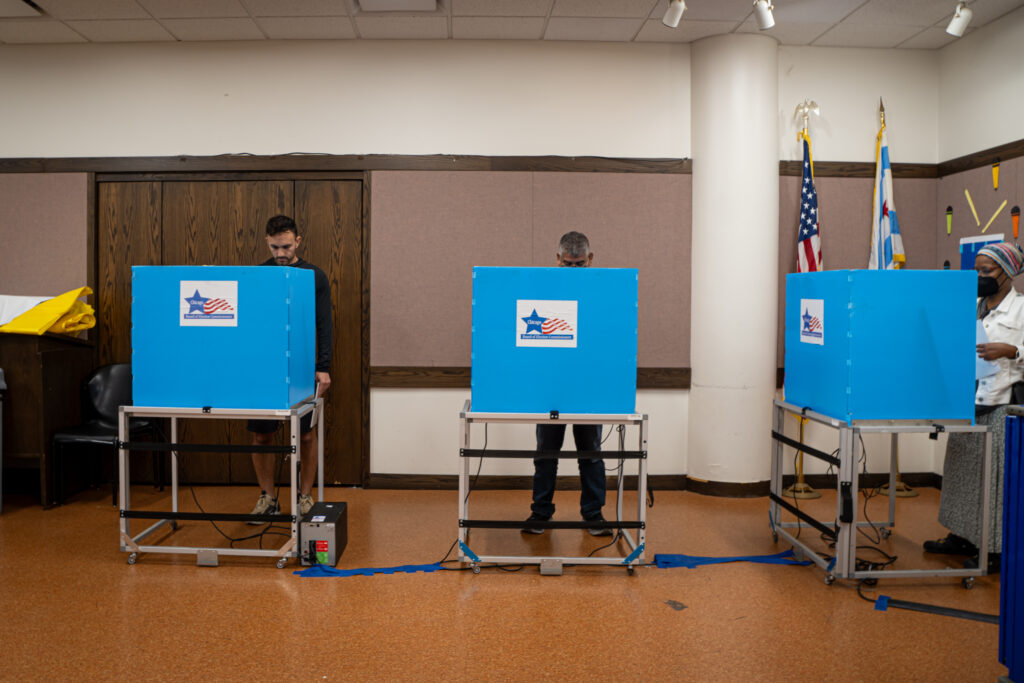
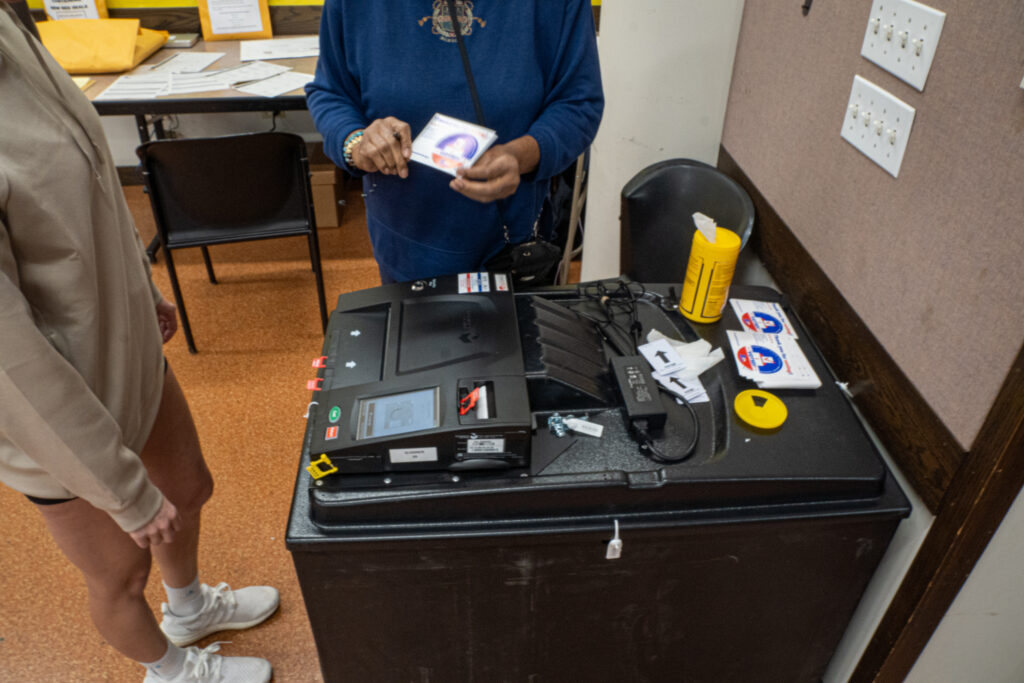
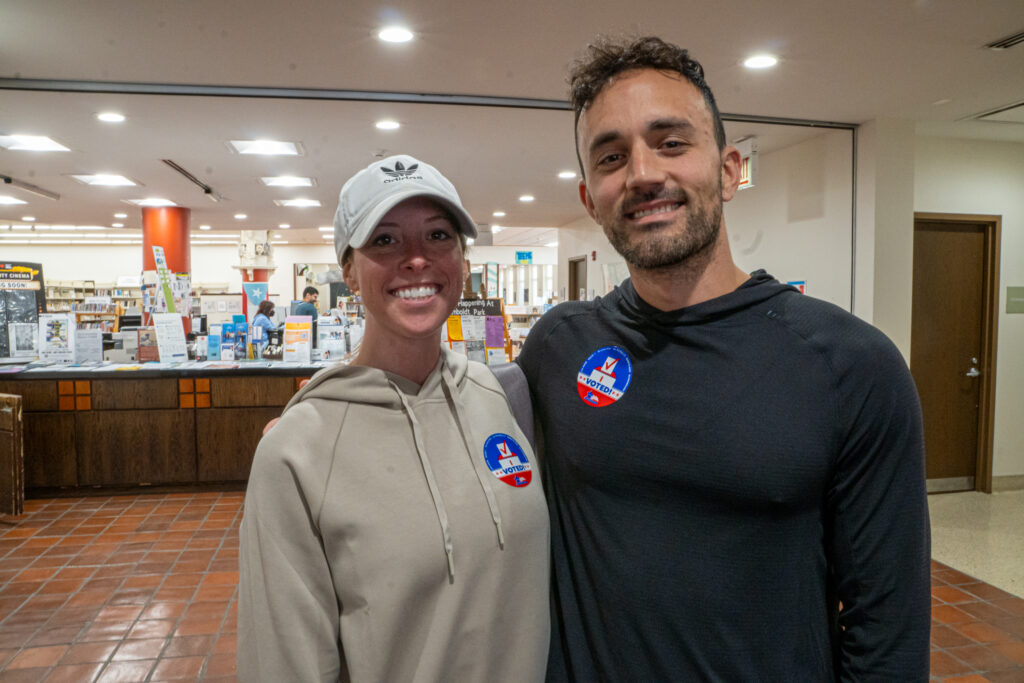
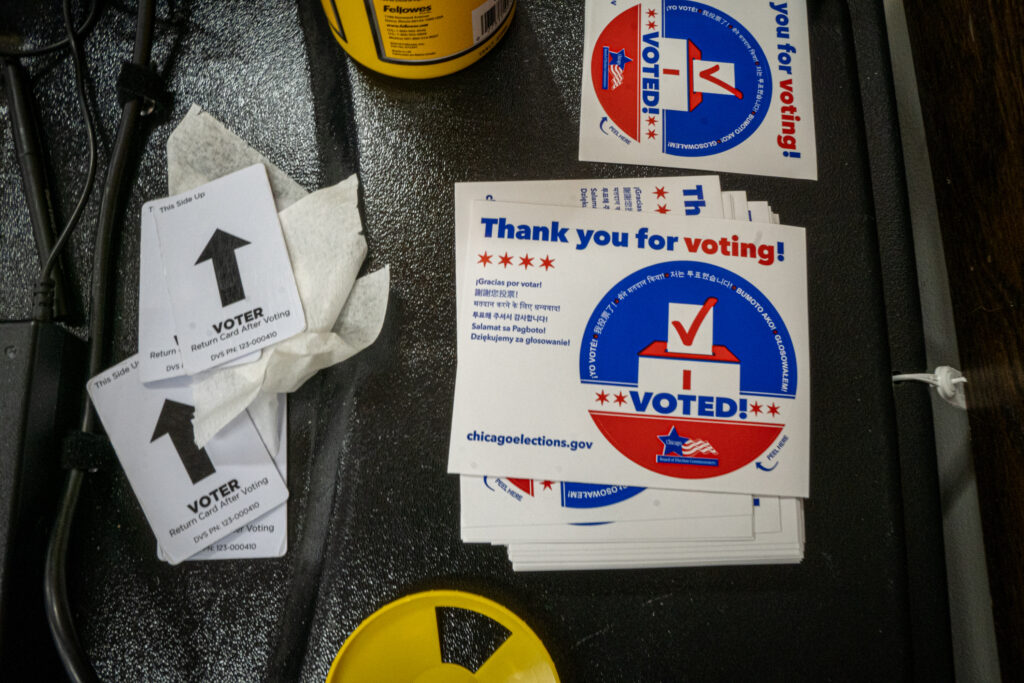
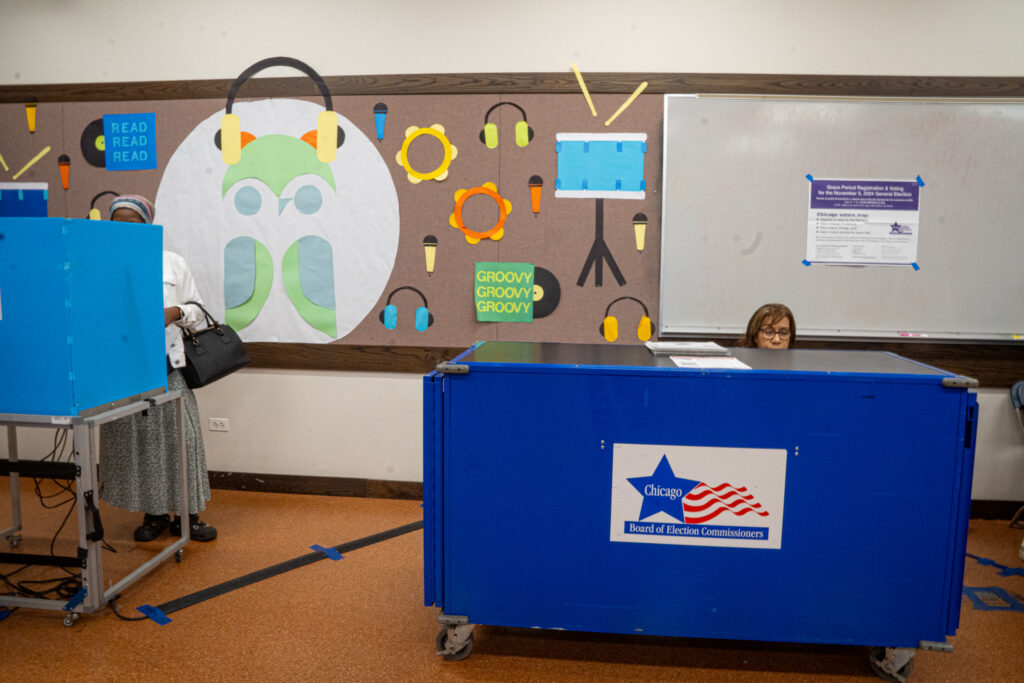
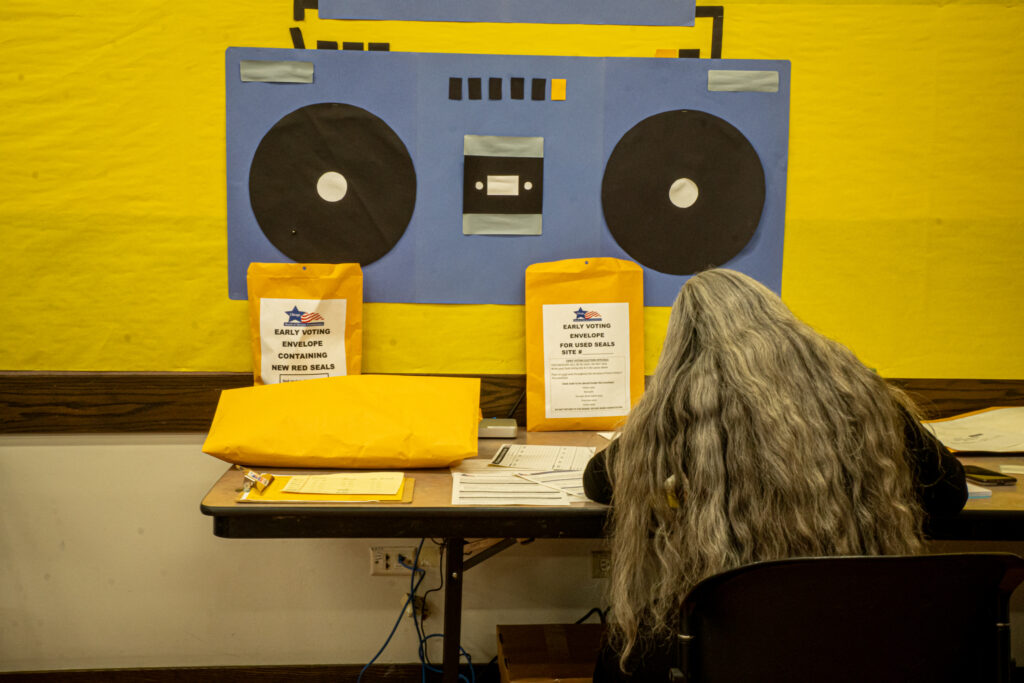
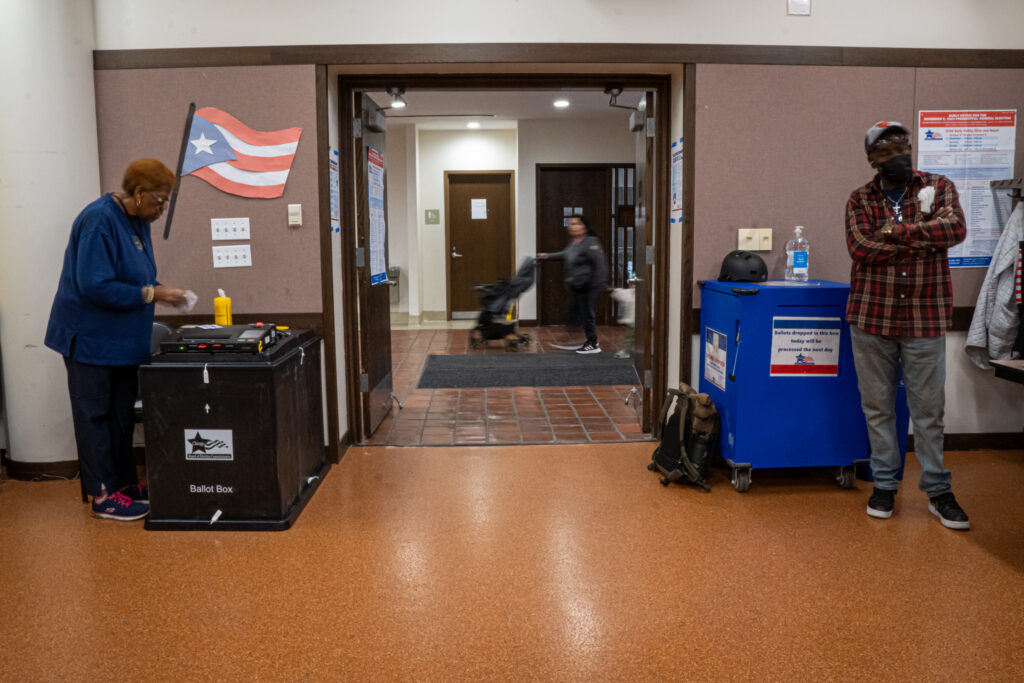
Aside from racial background, Gen Z is also on track to becoming the best educated generation to date, as well as the potential to be less religious.
Despite that, Michigan native Rose Casolari, 23, said that much of Gen Z is still young enough where family plays a large role in their lives.
“When you’re young the first place you get to participate in a political conversation is usually around the dinner table and usually it’s people with a higher authority leading the conversation,” Casolari said. “There are a lot of factors that go into a person’s voting habit and while one of those might be religion there are so many other factors that even if a Gen Z voter is secular, they are only losing one voice of thousands telling them how to vote.”
A poll from Marquette University’s Law Center found an uptick since July in Generation Z voters either with no preference for either candidate or those who are “double-haters.” However, the poll found that the number of young voters who like neither candidate remain below the level it was during spring 2024, when Biden was still in the running for re-election.
For Harris and Trump, 12% are unfavorable to both in October, a slight increase from July’s 10%. By contrast, 21% were unfavorable to both Trump and Harris in May, the poll found.
A University of Chicago GenForward poll released less than two weeks before the election, and reported first by NPR, found that although Harris continues to outperform Trump among Gen Z and millennial voters by 47% to 35%, she doesn’t have the support that Biden did among young voters in 2020.
Nikolas Ortega, an anthropology major at the University of Illinois Chicago, said neither Trump nor Harris is his first choice, but as a son of immigrants, immigration policy and the rhetoric around it is a key issue for him.
“We had Donald Trump, who was very anti-immigration, or somewhat along that line, and with a lot of derogatory stuff said about immigration, I want to see how they handle that,” Ortega said. “And in the current climate, I’m interested in how each candidate is going to help with the Palestinian issue going on.”
Biden withdrew his bid for presidential re-election on July 21. Hours after his withdrawal, he endorsed Harris.
Wichowsky said when Biden still had his hat in the ring, enthusiasm among Generation Z voters lagged because they didn’t support either candidate.
“Looking at polling data, late 2023 to early 2024 there was real lagging enthusiasm among Democrats, but especially younger left-leaning voters,” Wichowsky said. “If you look at how that shifted once Biden withdrew from the race and it was Harris, you saw a bump in enthusiasm, across those leaning left, you saw the sort of rising enthusiasm.”
As a whole, the Pew Research Center found that many young voters in Generation Z, as well as Millennials who span from 1981 and 1996, have similar views on major issues facing the country and Americans.
Similarly to Ortega, Alexis Willhite, a bioscience major at the University of Illinois Chicago, said immigration is a key issue for them, but also cited trans and LGBTQ+ rights, abortion and affordable housing as top issues.
Biden’s dropping out didn’t make much of a difference for Willhite.
As a voter from a younger generation, Willhite said some of these issues might not change, even with Harris in the White House, marking the first time that both a woman and a woman of color has held the role.
However, Generation Z and Millennials are poised to make up over 60% of the American vote by 2036.
With younger generations reaching voting age or nearing it, politicians have been courting them to cast their ballot in elections.
Wichowsky said more politicians have been accessing young voters through TikTok and other social media platforms. But when it comes to enticing young voters to actually go to the ballot box, she said, it will depend.
“There are several factors at play here, but certainly it behooves them to campaign on social media because that’s where young voters get a lot of their political information,” Wichowsky said.
At the end of the day, Casolari said the diversity of a candidate will likely play the “bigger role” for whom Gen Z chooses at the polls.
“Candidates who can’t emphasize or speak to certain identities are going to have a harder time getting the Gen Z vote,” Casolari said.
Miranda Bucio contributed additional reporting from Chicago.
Olivia Cohen is a Midwest-based journalist and a frequent contributor to GJR.
